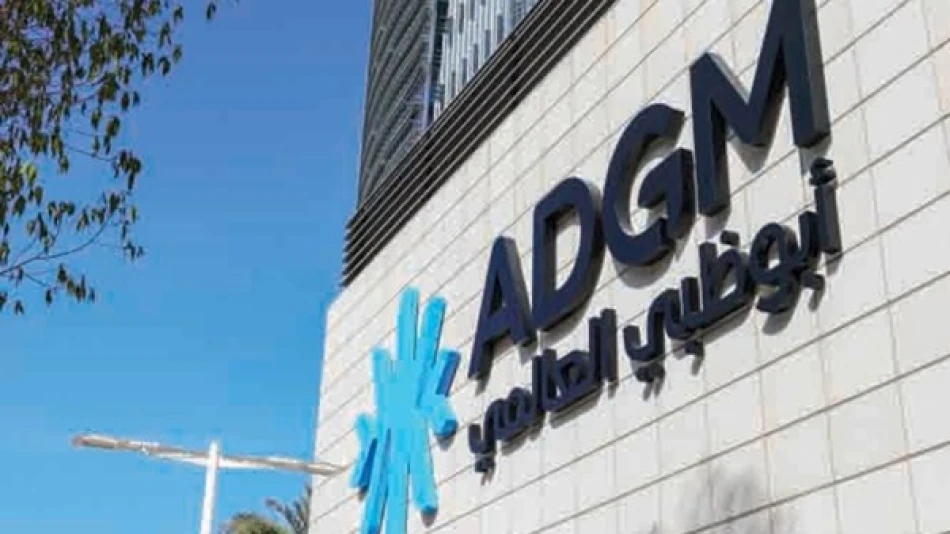
Abu Dhabi Global Financial Services and Azerbaijan Central Bank Forge Strategic Partnership
UAE-Azerbaijan Financial Partnership Signals Growing Middle East-Caucasus Economic Corridor
The Abu Dhabi Global Market Financial Services Regulatory Authority has signed a memorandum of understanding with Azerbaijan's Central Bank, marking another strategic move in the UAE's expanding financial diplomacy across emerging markets. This partnership positions both jurisdictions to leverage each other's regulatory expertise while potentially creating new pathways for cross-border investment and fintech innovation between the Gulf and Caucasus regions.
Beyond Regulatory Cooperation: A Strategic Economic Bridge
The agreement enables both parties to exchange expertise, organize training workshops, and collaborate on research and field visits to study best regulatory practices. However, the timing suggests deeper strategic considerations beyond routine regulatory cooperation.
Emmanuel Givanakis, CEO of the Abu Dhabi Global Market Financial Services Regulatory Authority, emphasized that the MOU establishes "solid foundations for knowledge exchange and innovation enhancement in the financial services sector, supporting capital market growth and contributing to continuous development of the financial sector within both jurisdictions."
Azerbaijan's Energy Wealth Meets UAE's Financial Expertise
Azerbaijan's oil and gas revenues have created substantial sovereign wealth that requires sophisticated financial management and diversification strategies. The UAE's proven track record in managing petrodollar flows and building international financial hubs makes it an ideal partner for Azerbaijan's economic modernization efforts.
This partnership could facilitate Azerbaijan's access to UAE's extensive network of international banks, asset managers, and fintech companies, while providing UAE financial institutions with entry points into Central Asian and Eastern European markets through Azerbaijan's geographic position.
Market Implications and Investment Opportunities
For investors and financial institutions, this agreement signals potential new opportunities in cross-border trade finance, energy project financing, and emerging market investments. Azerbaijan's strategic location along the Middle Corridor trade route connecting Asia and Europe adds significant value to this partnership.
The collaboration could particularly benefit fintech companies seeking to expand into underserved markets. Azerbaijan's developing digital payment infrastructure and the UAE's advanced regulatory framework for financial technology create complementary strengths that could accelerate innovation in both jurisdictions.
Regional Context and Competitive Positioning
This partnership reflects the UAE's broader strategy of building financial bridges with resource-rich emerging economies. Similar agreements with Kazakhstan, Uzbekistan, and other Central Asian nations demonstrate a systematic approach to capturing financial flows from the region's commodity wealth.
Taleh Kazimov, Governor of Azerbaijan's Central Bank, highlighted the importance of cooperation in "an increasingly interconnected financial world," noting its role in "enhancing innovation, strengthening regulatory practices, and contributing to the resilience of our financial systems."
Long-term Strategic Value
The agreement's emphasis on transparency and global standards alignment suggests both jurisdictions are positioning themselves for eventual integration with larger financial networks, potentially including enhanced cooperation with European and Asian financial centers.
For the UAE, this partnership strengthens its role as a financial gateway between East and West, while Azerbaijan gains access to international best practices that could accelerate its financial sector modernization. The collaboration on emerging risks and rapid developments in financial services indicates both parties recognize the need to stay ahead of regulatory challenges in an evolving global financial landscape.
This partnership represents more than regulatory cooperation—it's a strategic alliance that could reshape financial flows between the Middle East and Caucasus regions while creating new opportunities for international investors seeking exposure to both energy-rich economies and innovative financial services.
Most Viewed News

 Layla Al Mansoori
Layla Al Mansoori






